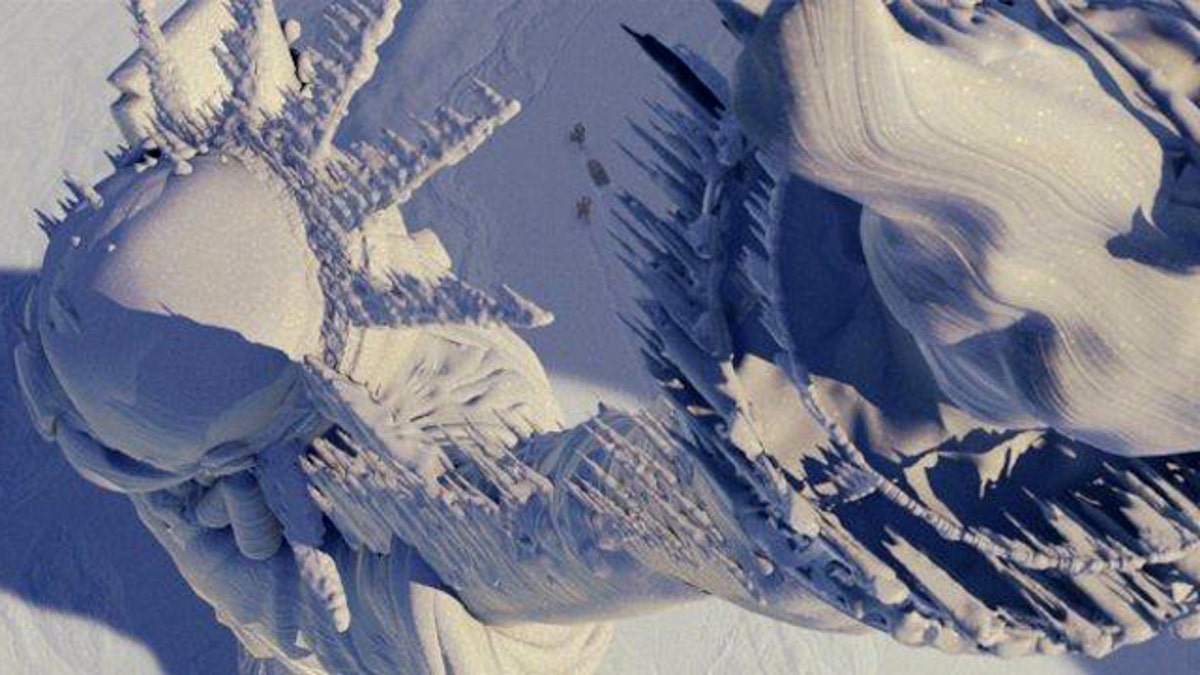
The Statue of Liberty, depicted frozen solid in the movie "The Day After Tomorrow." Many weather forecasters and scientists wonder whether a coming period of "global cooling" may be on the way. (Twentieth Century Fox)
The hottest new trend in climate change may be global cooling, some researchers say.
Contrary to the commonly held scientific conclusion that the Earth is getting warmer, Dr. Don Easterbrook, emeritus professor of geology at Western Washington University and author of more than 150 peer-reviewed papers, has unveiled evidence for his prediction that global cooling is coming soon.
“Rather than global warming at a rate of 1 F per decade, records of past natural cycles indicate there may be global cooling for the first few decades of the 21st century to about 2030,” said Easterbrook, speaking on a scientific panel discussion with other climatologists. This, he says, will likely be followed by “global warming from about 2030 to 2060,” which will then be followed by another cooling spell from 2060 to 2090.
Easterbrook spoke before a group of about 700 scientists and government officials at the fourth International Conference on Climate Change. The conference is presented annually in Chicago by the Heartland Institute, a conservative nonprofit think tank that actively questions the theory of man's role in global warming. Last year the Institute published Climate Change Reconsidered, a comprehensive reply to the United Nations' latest report on climate change.
"Global warming is over -- at least for a few decades," Easterbrook told conference attendees. "However, the bad news is that global cooling is even more harmful to humans than global warming, and a cause for even greater concern."
Easterbrook made several stunning claims about the effects of the coming cold. There will be twice as many people killed by extreme cold than by extreme heat, he predicted, and global food production will suffer because of the shorter, cooler growing seasons and bad weather during harvest seasons.
But not everyone is breaking out the overcoat and mittens.
“It's absurd to talk of global cooling when global heating is with us now and accelerating," said Dan Miller, managing director of the Roda Group, and an expert on climate change. "According to NASA, this past April was the hottest since temperature measurements began. And 2010 is on track to be the hottest year since temperature records began.
“North America was relatively cool last year, but the Earth as a whole was much warmer than average,” he said.
Data from the National Oceanic and Atmospheric Agency (NOAA) also points to a warming trend. The agency recently reported that global land and ocean surface temperatures for the first four months of 2010 were the warmest it had on record.
Easterbrook, one of 75 climate and policy experts presenting at the conference, uncovered sudden climate fluctuations of warming and cooling -- all of which occurred before 1945, when carbon dioxide levels began to rise sharply -- through geologic evidence.
Ten big climate changes occurred over the past 15,000 years, and another 60 smaller changes occurred in the past 5,000 years.
Based on new analysis of ice cores from Greenland to Antarctica, Easterbrook said global temperatures rose and fell from 9 to 15 degrees in a century or less -- swings that he said were "astonishing."
In addition, he explained that energy consumption will rise -- and consumer prices will rise along with it -- and political and social instability could result as the world population grows 50 percent in the next 40 years while food and energy demand soars.
Another presenter at the conference, James M. Taylor, an environmental policy expert and a fellow at the Heartland Institute, said that global cooling is already happening. Based on figures provided by the Rutgers University Global Snow Lab, he noted that snow records from the last 10 years exceeded the records set in the 1960s and 1970s.
A sign of global cooling? This past “decade set a record for largest average global snow extent,” Taylor said.








































